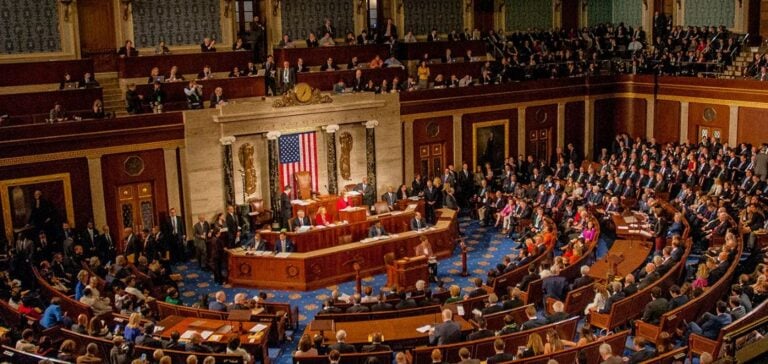Reforms for energy project permits in the United States will not be adopted before the end of the 118th Congress. The debates, which focused on approval timelines for energy infrastructure and environmental disputes, have now been postponed to the next legislature dominated by Republicans.
The failure of negotiations between Democrats and Republicans prevented the inclusion of these measures in the funding bill aimed at avoiding a government shutdown. The bipartisan project S. 4753, known as the Energy Permitting Reform Act of 2024, had nonetheless reached a key milestone with a favorable 15-4 vote in the Senate in July.
Persistent Political Deadlock
The goal of the bill was to accelerate the approval of energy projects, whether related to liquefied natural gas (LNG) exports, electric transmission lines, or renewable and fossil energy production. However, disagreements between the two parties, primarily regarding the National Environmental Policy Act (NEPA), stalled the discussions.
Republicans are demanding a significant reduction in legal challenges against energy infrastructure projects, a request strongly criticized by Democrats. Tom Carper, the Democratic chairman of the Senate Environment and Public Works Committee, expressed his disappointment, stating that the proposals offered significant NEPA reforms to speed up projects while ensuring clear regulations.
Priorities for the Next Republican Congress
With a Republican majority in both chambers and expected control of the White House in 2025, discussions will resume on new terms. House Speaker Mike Johnson affirmed that Republicans will secure stronger and more comprehensive reforms next year.
Key priorities include:
– Limiting legal review timelines for energy projects to a maximum of 150 days;
– Reducing states’ ability to block natural gas pipelines by refusing environmental permits;
– Strengthening the federal role in siting interstate electric transmission lines.
Pressure from Economic Stakeholders
Certain conservative factions, such as the Competitive Enterprise Institute, encouraged Republicans to wait for a more favorable majority, arguing that they could achieve more substantial reforms regarding NEPA and the Clean Water Act.
At the same time, pressure is increasing from the energy sector. A coalition of major stakeholders, including the American Council on Renewable Energy, advocates for reforms to accelerate critical energy infrastructure projects.
An Issue for Critical Infrastructure
The postponement of discussions comes as infrastructure needs to support energy production remain critical for U.S. energy security. Whether it involves transmission lines, LNG exports, or natural gas pipelines, projects require simplified approvals to meet domestic and international energy demand.






















